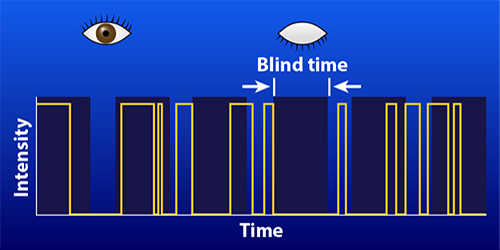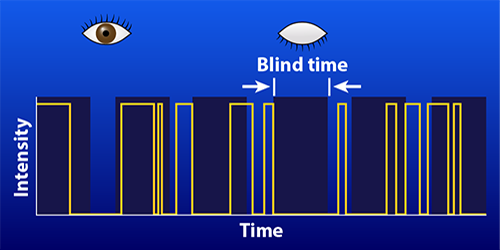Blink and You Won’t Miss It
The simple act of saving data can disrupt a measurement, leaving gaps in the signal that is being collected over time. Now, Alexandra Shcukina, from the University of Warsaw in Poland, and colleagues have shown that these so called “blind times,” during which no data are recorded, don’t necessarily change the value of a measurement but only increase its uncertainty. The results should be applicable to many experimental techniques involving blind times that cannot be eliminated, such as oscilloscopes, which take time to update, or particle detectors, which pause immediately after recording an event.
The authors considered “blinking” photon-emitting quantum dots, which randomly switch from being on (continuously emitting photons) to being off. They collected photon emission plots from both simulated and real blinking quantum dots and then cut pieces from the traces to mimic blind times. Each stretch of blind time was chosen to be shorter than the average blinking time of the dot (the length of time it was off) but longer than any one trace segment that remained. Under these conditions, and for both real and simulated dots, the authors determined the same average blinking time whether they observed the dots with blind times or continuously. The only effect of blind times was greater statistical uncertainty in the measured blinking time. To quantify this effect, the author simulated the fluorescence from 10,000 emitters observed with and without blind times and measured the fraction of time the dots were on. They found the uncertainty in this quantity increased more than fivefold when blind times were present.
This research is published in Physical Review E.
–Katherine Wright





